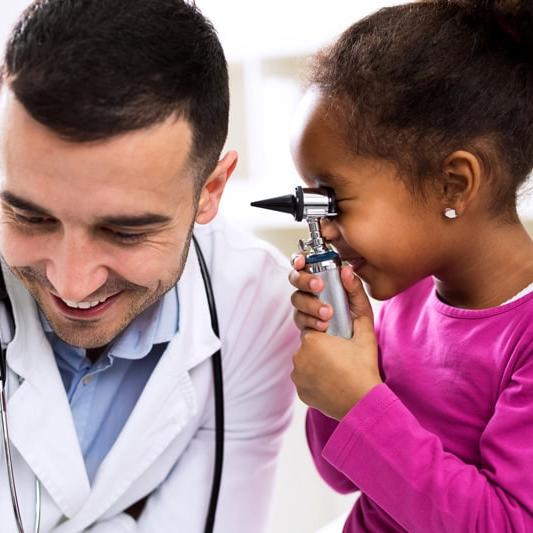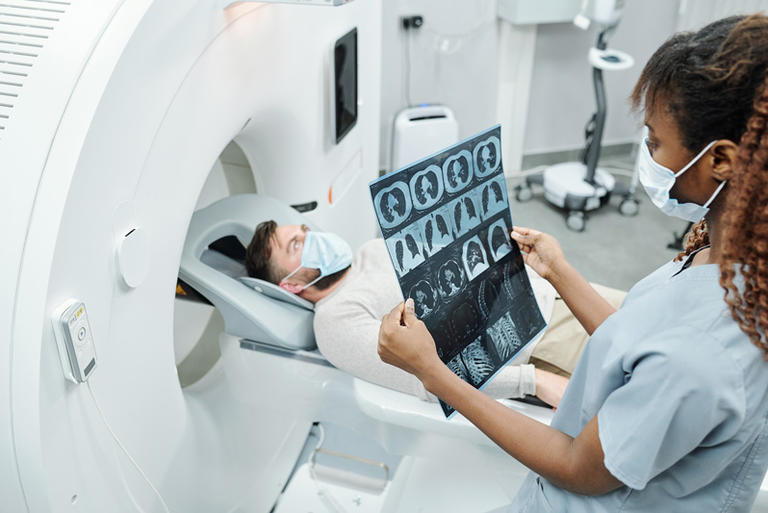You know you’re interested in a career in medicine, but you also enjoy puzzles and problem solving. If this describes you, you might think about pursuing a career as a forensic pathologist. You might have seen one on television. Picture this: a team of detectives is investigating the scene of a death, but their investigation has hit a wall. They need help figuring out what happened, so they enlist the assistance of a forensic pathologist. Often a coroner or medical examiner, the forensic pathologist studies the evidence, runs some tests, and finds the crucial evidence the detectives need to find their suspect. But what is a forensic pathologist? What does a forensic pathologist do exactly? And what kind of education is necessary to become one? If this kind of career sounds interesting to you, read on for answers to these and more questions and learn how to become a forensic pathologist with a medical degree from Ross University School of Medicine (RUSM).
What a Forensic Pathologist Does
What is forensic pathology anyway? Pathology is the branch of medicine that deals with the study of disease, and forensics is the application of scientific knowledge to legal problems. Pathologists study tissue samples and bodily fluids to learn about the cause and nature of disease. Forensic pathology is a subspecialty of pathology that studies cases of suspicious, violent, or sudden death. Forensic pathologists study the dead to determine why and how they died. They may assist the police in an investigation, and they could be called to present their findings in court to a jury.
Forensic pathologists perform autopsies to learn about a person who has died. An autopsy is the internal and external examination of a dead body. Forensic pathologists examine any wounds or abrasions, and they make take pictures for later study. They may take tissue samples to test for the presence of disease or infection, or take samples of bodily fluids to test for the presence of drugs or toxins. They may X-ray particular organs. After studying this information, along with the decedent’s medical history, forensic pathologists create a report summarizing their findings. They try to determine when the person died, what was the cause of death (a specific disease or injury), what was the manner of death (whether it was natural, accidental, a suicide, or a homicide), and, if applicable, what instrument was involved in the death. Forensic pathologists may report these findings to the next of kin, an insurance company, or a court of law. Forensic pathologists may be called to serve as expert witnesses in court, explaining how they reached their conclusions from the available evidence.
Forensic Pathologist SCHOOLING
Now you know the answer to the question, what is a forensic pathologist, but what kind of schooling is required to become one? Forensic pathologists are licensed physicians, so the first step is to graduate from an accredited medical school such as Ross University School of Medicine (RUSM)*. RUSM is located on the Caribbean island of Barbados. Students at RUSM take two years of medical science classes followed by two years of clinical training, similar to students at United States-based medical schools. RUSM’s medical sciences curriculum is completed on campus in Barbados, while the clinical portion of one’s training can be completed at RUSM’s affiliated clinical locations in the United States and the United Kingdom. Clinical training consists of rotations (also called clerkships) in a variety of medical disciplines including surgery, internal medicine, and pediatrics. After these core rotations, medical students choose elective clerkships in medical subspecialties that will help them hone their skills before they are licensed to practice medicine.
During the fourth and final year of medical school, students prepare for the next step in their medical education: residency. At RUSM, the Office of Career Advisement (OCA) helps students determine which residency specialty—such as forensic pathology—suits them best. The OCA can help students negotiate the National Resident Matching Program® (NRMP®)—a placement system which medical students who want to obtain licensure in the United States use to “match” with a medical residency.
Residencies are required to become a licensed physician, and they last from three to eight years. Prospective forensic pathologists may take three years of residency training in anatomic (hospital) pathology followed by one year of forensic pathology training. Or, a forensic pathologist trainee could take a five-year combined residency of anatomic pathology, clinical pathology (laboratory medicine), and forensic pathology. Alternatively, a medical student seeking to become a forensic pathologist could follow a path consisting of two years of anatomic pathology, one year of forensic pathology, and one year of neuropathology, toxicology, or a related field. During this period of training, future forensic pathologists learn about ballistics, DNA technology, forensic serology (identifying bodily fluids and other biological samples), toxicology, and trace evidence.
RUSM had a first-time residency attainment rate of 92 percent for 2020-2021 graduates, a rate comparable with the overall match rate (93 percent) for medical schools in the United States. In recent years, RUSM MD’s have matched with pathology residencies at such hospitals as Case Western Reserve University/ University Hospitals Cleveland Medical Center in Ohio; Henry Ford Hospital in Michigan; North Shore University Hospital/ Long Island Jewish Medical Center in New York; and Penrose Hospital in Colorado.
The National Association of Medical Examiners® (NAME) has more details on their web page, Forensic Pathology Fellowships. After completing forensic pathology training, a physician may join NAME or another professional organization. NAME sets standards for forensic pathology, promotes research in the field, and provides further educational opportunities for its members.
Now you know what forensic pathology is, what kind of work forensic pathologists do, and what kind of training is required. If a career in forensic pathology intrigues you, look into the RUSM MD program and, when you’re ready, apply for admission to RUSM and begin your medical journey.
Related Resources:
*Ross University School of Medicine is accredited by the Caribbean Accreditation Authority for Education in Medicine and other Health Professions (CAAM-HP, www.caam-hp.org).
CAAM-HP is the legally constituted body established in 2003 under the aegis of the Caribbean Community (CARICOM), empowered to determine and prescribe standards and to accredit programs of medical, dental, veterinary and other health professions education on behalf of the contracting parties in CARICOM.
Accreditation by CAAM-HP is a rigorous, peer review process which examines all aspects of a medical program. The CAAM-HP board, an independent and autonomous body of professionals, only certifies medical schools which are operating at the highest levels of industry standards.
Through this accreditation, the CAAM-HP provides assurance to medical students, graduates, the medical profession, healthcare institutions and the public that programs leading to qualifications in medicine meet appropriate national and international standards for educational quality, and that the graduates have a sufficiently complete and valid educational experience.




